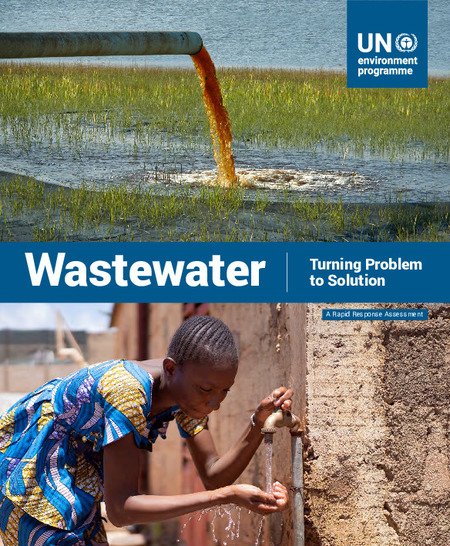STOCKHOLM, AUGUST 23 – From direct potable reclamation in Windhoek, Namibia, to the new London Super Sewer project to drastically reduce (up to 95%) wastewater pollution in the Thames. Using urine-based fertilizer on the island of Gotland, Sweden allows farmer to grow malting barley, which in turn is used to produce beer. And, again in Sweden, a urine-separating toilet integrated with a urine dryer was installed at the offices of VA
SYD, the company that manages water and wastewater treatment in Sweden’s Skåne region as part of the ongoing research project REWAISE, co-funded by the EU. These are some “case studies” of successful wastewater management presented in the new UNEP report launched today in Stockholm to coincide with the World Water week.
The case studies come from various countries, both high and low-income, including also China, Colombia, Denmark, Egypt, Germany, India, Israel, Senegal, Singapore, the Solomon Islands, and Tunisia, as well as from the Caribbean region.
Wastewater is a growing health and environmental threat, accounting for almost as many planet warming emissions as the aviation industry. Yet, with the right policies, wastewater could be an invaluable resource, providing alternative energy to half a billion people, supplying over 10 times the water provided by current global desalination capacity and offsetting over 10 per cent of global fertilizer use. “Globally, wastewater is full of potential, yet it is currently allowed instead to contaminate the ecosystems we rely on,” said Leticia Carvalho, Head of Marine and Freshwater Branch at UNEP: “We must not let the opportunity simply disappear down the drain: it’s time to realize the promise of wastewater as an alternative source of clean water, energy, and important nutrients.”
More than 10 years have passed since the release of the report ‘Sick Water? The Central Role of Wastewater Management in Sustainable Development‘, and despite some progress, significant amounts of wastewater are still being released untreated into the environment with negative repercussions for the environment and human livelihood.
This new report, “Wastewater – Turning problem to solution” challenges the view that wastewater is an end-of-pipe problem to be disposed of and, instead, repositions it as a circular economy opportunity: a renewable and valuable resource to be conserved and sustainably managed with the potential to drive new jobs and revenue streams. It calls for three actions: reducing how much wastewater we produce, being more careful about what goes into the water we use, and considering how to better collect and treat wastewater so that we can recover and safely use its valuable resources.
The building blocks focus on the social, cultural and behavioural changes that will need to happen in order for actions to succeed: ensuring an enabling, coherent governance and legislative framework; mobilizing investment in infrastructure and the human and institutional capacity that is needed; encouraging technical and social innovation; improving data feedback for iterative adaptation; and strengthening communication and awareness to build understanding and trust to help change our behaviours and attitudes
to water usage. (@OnuItalia)

